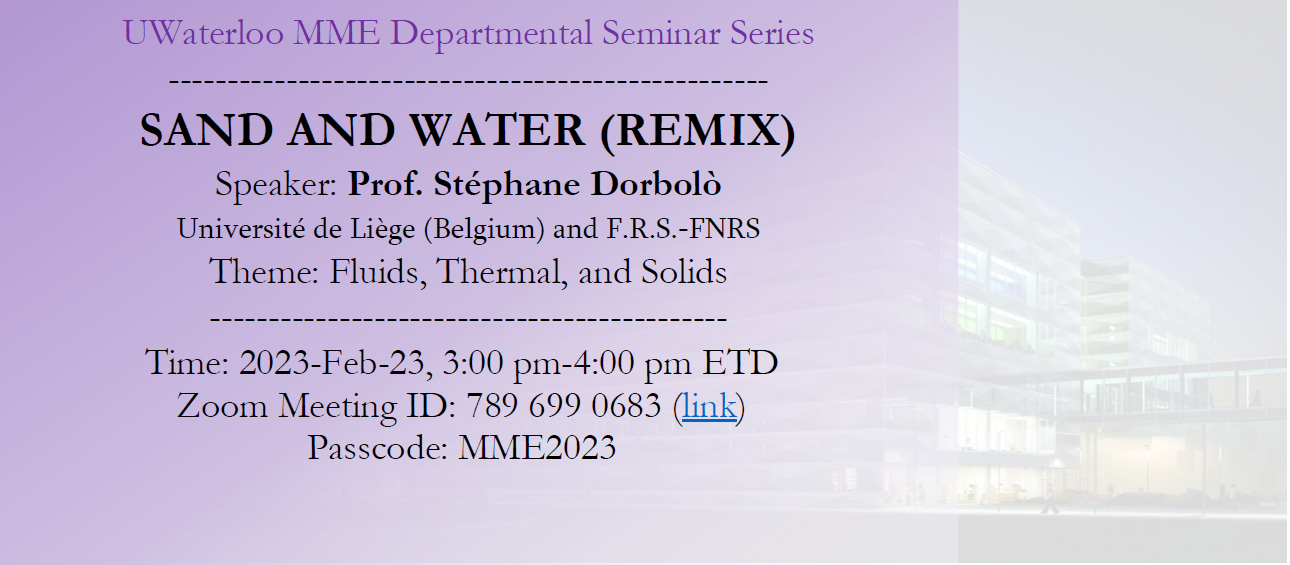Thursday, February 23, 2023 3:00 pm
-
3:00 pm
EST (GMT -05:00)

Abstract: Mixing grains with a fluid is as old as the beer discovery. Most often then not, the volume ratio between the grains and the liquid is close to 1:1 like in bread dough, concrete, mud… During this talk, we will be interested by particular mixings for which one of the components is in small quantity compared to the other. In the first part, we will describe two situations. (i) The impact of a droplet on a granular surface which is typically observed when it rains on a dry beach. The spreading of the droplet is constrained by the adsorption of grains at its surface. (ii) The impact of a single grain on a wet granular material which is typically the easiest way to build a sand castle. The impacting dry grains can be captured by the surface humidity of the wet granular material. This capturing process induces the generation of grain towers built grain by grain. In the second part, we will consider the Leidenfrost effect. This effect is obtained when a droplet is released on a smooth and solid surface heated beyond the boiling temperature of the liquid. If the temperature is sufficient, the droplet levitates on its own vapour conferring to a droplet perfect non-wetting conditions. (i) First, a small quantity of grains is added. The grains are trapped by the interface forming a monolayer of grains surrounding the levitating droplet. Armoured droplets are obtained. (ii) In the second step, the droplet is released on a large assembly of heated grains which is unfavourable regarding the Leidenfrost effect. Under given conditions, we observed that the droplet starts digging the granular material. This effect is due to a particular case of the Leidenfrost effect.
Stéphane Dorbolo is an F.R.S.-FNRS research associate and an associate professor at the Université de Liège (Belgium). He received his Ph.D from the University of Liège in 2000 for his thesis concerning the thermal properties of the high-Tc superconductors at the SUPRAS laboratory. Then, he started a post-doc at the GRASP group about the electrical properties of granular material and was a visiting scientist at ARC (Cambridge), Collège de France, Clark University and ENS-Lyon extending his field of research to droplets, anti-bubbles and granular materials in general.
Please contact the host, Prof. Zhao Pan (zhao.pan@uwaterloo.ca), if any questions